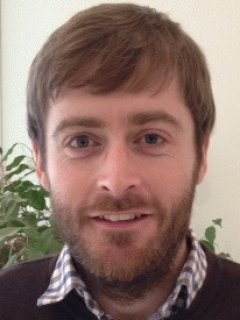“Understanding the question is half the answer,” is what my Kurdish colleague Mahdi rated the toughest challenge when conducting focus groups in Iraqi Kurdistan. By this, he meant that the biggest hurdle is explaining to Kurdish respondents what a focus group actually is.
Qualitative research is a nascent industry in the Kurdistan region of Iraq, which has remained a relatively safe and stable region within the country over the past ten years. Economic growth and democratic elections have created the beginnings of a recognisable consumer society, with greater interest in Kurdish public opinion.
Alien concept
The vast majority of Kurds, however, still do not know what a focus group is. So setting one up involves training recruiters, for whom the concept is alien, to encourage people to attend something they have never heard of before. This isn’t helped by the fact that there is no word for focus group in Kurdish.
So we ask respondents to take part in a ‘meeting’ where they will discuss ideas with other people in exchange for a modest incentive. Civic, religious and local organisations conduct meetings all the time in the Kurdistan Region and they tend not to involve any questions. They tend to involve someone speaking and the attendees listening, or pretending to listen.
Respondents realise that a focus group is no ordinary meeting when they are expected to speak. The first probes of “why?”, or “what do you mean by…” or “that’s interesting, tell me more about…” encourage them to respond, and they feel like they are actually being listened to. More than any other qualitative techniques we have attempted to introduce, these simple probes remain the most powerful.
Questioning in Kurdish society
Mahdi and I believe they are so effective precisely because of the lack of questioning in Kurdish society.
When I started training moderators in Iraqi Kurdistan one of the first things I noticed was that the people I was training didn’t ask questions. Obviously, from a moderating perspective, this is far from ideal. So before tackling the theories of group dynamics and projective questions, we started with a simple rule: when I say something ask me a question about it so that I know you’ve understood me. When I invented this rule I reflected on how important simple clarifying questions are in making someone feel listened to, and how asking questions is such a big part of how we communicate in the UK.
The issue
The issue, Mahdi told me, is that Kurdish people are raised to not ask questions, but that “if I open their heart, I will smell many questions”.
He had many theories about why Kurdish society does not encourage questions, and they mostly stemmed from what we might understand as a cultural conservatism. Women, children and even younger men are encouraged to stay quiet and defer to the judgement of older men. This, he thought, helps establish a society that doesn’t ask enough questions and people who never feel listened to. He also thought that the importance of maintaining your familiy’s ‘reputation’ in societies where large families all know each other discourages candid discussion with strangers.
We also discussed the role of religion and the way in which the Koran is learnt by heart. This could contribute to lack of questioning and debate as Kurds still learn the Koran in Arabic, but many will not actually speak Arabic, making it hard to understand let alone question the ideas. However, this experience will vary according to local community and school and Mahdi didn’t perceive it to be as large a factor as other cultural ones.
Also, many of the respondents in our focus groups will have grown up under Saddam’s regime and the Kurdish civil war in the 1990s, when freedom of speech was restricted. Even today the mainstream media is largely funded by political parties, which leads Kurdish people to believe that the media obfuscates issues rather than informs or promotes debate.
Despite this very different context, the things that Mahdi likes about running focus groups in Iraq are the same things I enjoyed in the UK: they help him understand his nation and his people. Moderating leads him to hear views he would not otherwise be exposed to, meet people he would not otherwise meet and ask questions he would not otherwise ask. Essentially they make him see the world differently.
Mahdi is often told at the end of focus groups that Kurds desire more focus groups. He wants public opinion to be a bigger part of public debate and decision making in the Kurdistan region. This appears to be where our experiences are very different. In the UK, most people I speak to tend to think that fewer focus groups are needed, that political and business leaders are driven too much by public opinion.
Perhaps if these people saw a society where no one knew what a focus group was, they may reconsider the role that public opinion should have in Britain today.


